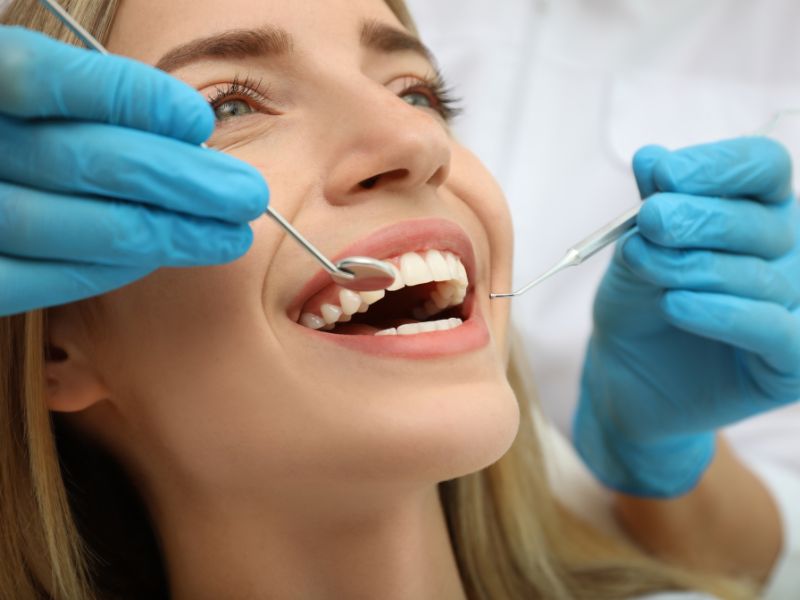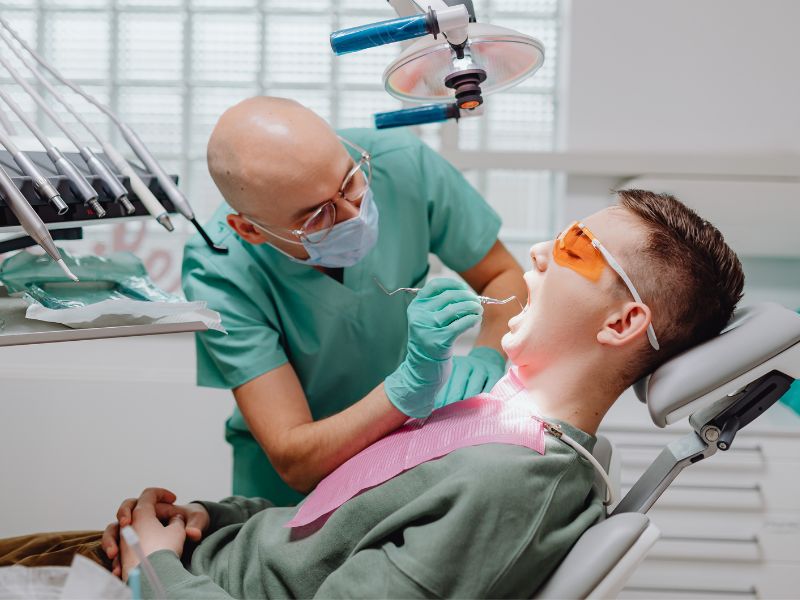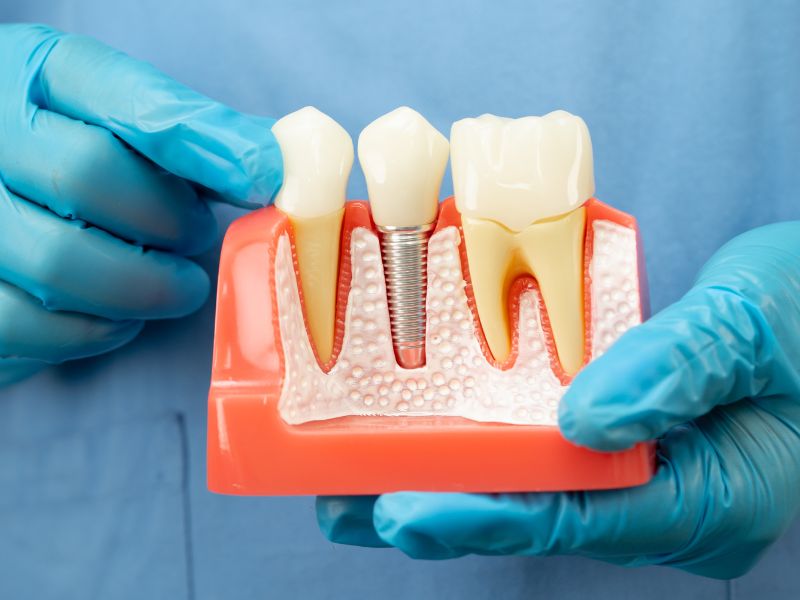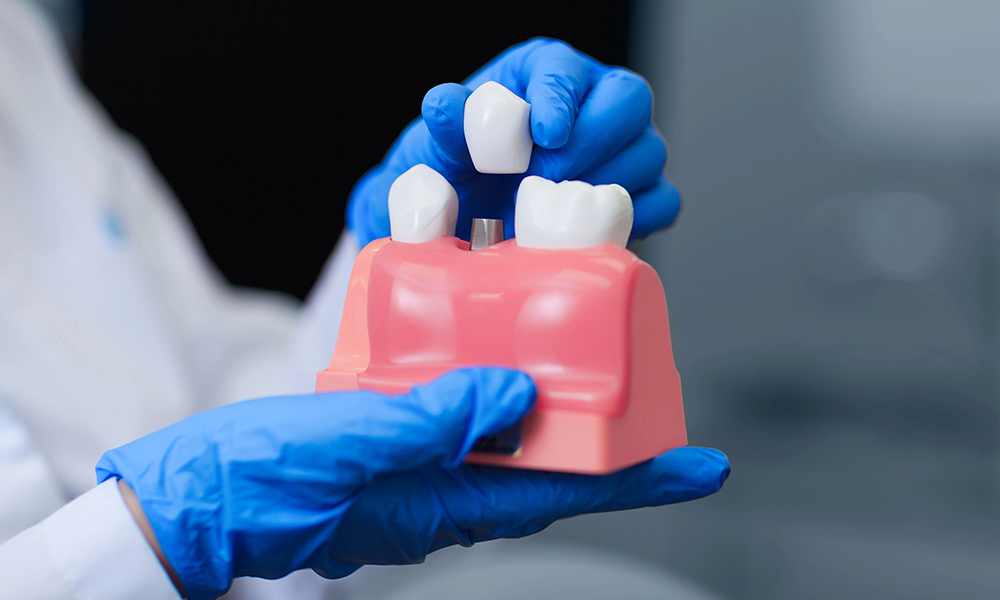Dental Clinic in Kitsilano
Dental Clinic in Kitsilano
Tooth Extractions in Kitsilano, Vancouver
Dental Extractions in Kitsilano, Vancouver

At Arbutus Station Dental, we understand that maintaining optimal oral health is crucial for overall well-being. While our primary focus is on preserving natural teeth, there are instances where dental extractions become necessary to ensure the long-term health of your smile.
The Importance of Dental Extractions
- Relief from Pain and Discomfort: Dental extractions are often recommended when a tooth is severely decayed, infected, or damaged beyond repair. The procedure helps alleviate pain and discomfort, providing immediate relief to the patient.
- Preventing the Spread of Infection: Infected teeth can pose a threat to neighbouring teeth and surrounding tissues. Extracting the affected tooth prevents the infection from spreading, safeguarding the overall oral health of the patient.
- Orthodontic Treatment: In some cases, dental extractions are a strategic part of orthodontic treatment plans. Removing overcrowded or misaligned teeth can create space for proper alignment, ensuring the success of braces or other orthodontic interventions.
- Wisdom Teeth Management: Wisdom teeth, also known as third molars, often erupt in a way that can lead to crowding, impaction, or other issues. Dental extractions are commonly performed to manage the eruption of wisdom teeth and prevent complications.
The Dental Extraction Process at Arbutus Station Dental
- Comprehensive Evaluation: Before recommending a dental extraction, our experienced team conducts a thorough examination, including digital X-rays if necessary, to assess the condition of the tooth and surrounding structures, as part of our general dentistry services.
- Personalized Treatment Plan: Based on the evaluation, our skilled dentists create a personalized treatment plan that outlines the reasons for extraction and discusses alternative options when applicable, including considerations around root canal vs extraction.
- Preparation and Anesthesia: Before the extraction, the patient is briefed about the procedure, and local anesthesia is administered to ensure a pain-free experience. For anxious patients or complex cases, sedation options may also be available.
- Gentle Extraction: Our dentists use state-of-the-art equipment and techniques to perform gentle extractions. The tooth is carefully loosened and removed, taking utmost care to minimize trauma to the surrounding tissues.
- Post-Extraction Care: After the extraction, our team provides detailed post-operative instructions to promote optimal healing. Patients are also educated on proper oral care during the recovery period. When appropriate, we also discuss tooth replacement options such as dentures.
Conclusion
At Arbutus Station Dental, our commitment to your oral health extends to providing compassionate and expert dental extractions when necessary. We prioritize your comfort and well-being throughout the process, ensuring that you leave our practice with a healthy smile. If you have concerns about a tooth or are considering a dental extraction, schedule a consultation with us today to explore your personalized treatment options. Your journey to a healthier, happier smile begins with Arbutus Station Dental.
Frequently Asked Questions
Meet Our Kitsilano Dentist

Dr. Christopher Low, an experienced dentist based in Kitsilano, established his roots in this community alongside his wife and family. Dr. Low, a native of Victoria, British Columbia, embarked on his academic journey by pursuing a Bachelor of Science degree in Biology at the University of Victoria, successfully earning his degree in 2003.
Following his undergraduate pursuits, Dr. Low's fascination with the realm of biological sciences initially led him toward a career in academia. He started his professional journey at the BC Cancer Research Centre, where he conducted pioneering research in prostate cancer. This period of scholarly engagement culminated in the completion of a Master's degree in Oncology from the University of British Columbia (UBC) in 2010.
Subsequently, Dr. Low's evolving interest in clinical practice prompted him to further his education, culminating in him earning his Doctorate of Dental Medicine from UBC in 2014. This academic achievement was complemented by a year-long general practice residency at Montefiore Medical Centre in the Bronx, New York. During this pivotal phase of his career, Dr. Low gained invaluable experience across the spectrum of general dentistry, including the management of emergency dental cases.
Beyond his professional endeavours, Dr. Low can often be found outdoors amidst the picturesque landscapes of our local mountains, indulging in activities such as mountain biking and snowboarding. When not pursuing his adventurous passions, he dedicates cherished moments to his family life in the city, enjoying quality time with his wife Julia and actively engaging with their lively 6-year-old son, Theo, and their 2-year-old daughter, Georgia
Your Trusted Dental Partner
Why Choose Arbutus Station Dental
Your trusted dental partner
Why Choose Arbutus Station Dental
Articles & Stories




